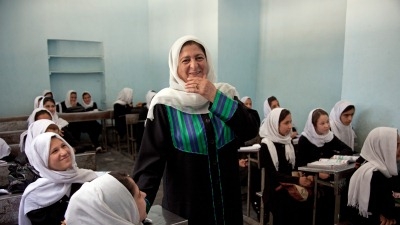The National Solidarity Programme (NSP) is the largest development program in Afghanistan. Since its inauguration in 2003, the NSP has established 32,000 Community Development Councils (CDCs) across 361 districts in all of Afghanistan's 34 provinces and has financed nearly 65,000 development projects. The NSP seeks to improve the access of rural villagers to basic services and to create a foundation of village governance based on democratic processes and female participation.
The program is structured around two major village-level interventions:
1. The creation of a gender-balanced CDC through a secret-ballot, universal suffrage election.
2. The disbursement of block grants, valued at $200 per household up to a community maximum of $60,000, to fund village-level projects selected, designed, and managed by the CDC in consultation with villagers.
The NSP Impact Evaluation (NSP-IE) is a multi-year randomized control trial designed to measure the effects of implementation of the second phase of NSP on a broad range of economic, political, and social indicators. While there have been a number of qualitative studies of NSP, the NSP-IE is the first large-sample quantitative assessment capable of providing rigorous estimates of program impact.
The study tests a series of hypotheses which examine the impacts at midline and end line of NSP on the access of villagers to utilities, services and infrastructure; on the economic welfare of villagers; on local governance; on political attitudes and state-building; and on social norms.
Evaluation results show that NSP improves the access of villagers to basic utilities. NSP also increases access to education, health care, and counseling services for women. As NSP does not usually fund such services, these impacts arise indirectly from other changes induced by NSP. NSP increases girls' school attendance and their quality of learning, but there is no impact on boys' school attendance. NSP also increases child doctor and prenatal visits and the probability that an illness or injury is attended to by a medical professional, although does not affect other health outcomes. Finally, NSP raises the proportion of women who have a group or person with whom they can discuss their problems. NSP-funded utilities projects deliver substantial increases in access to drinking water and electricity, but less effective in other infrastructure projects, such as transport and irrigation.
- NSP IE full report (English)
- Executive Summary of the IE (English) (Dari) (Pashto)
- Recommendations how the evaluation findings could be used to strengthen the program (English) (Dari) (Pashto)
For more information about the NSP-IE, please see these frequently asked questions (English) (Dari) (Pashto).

